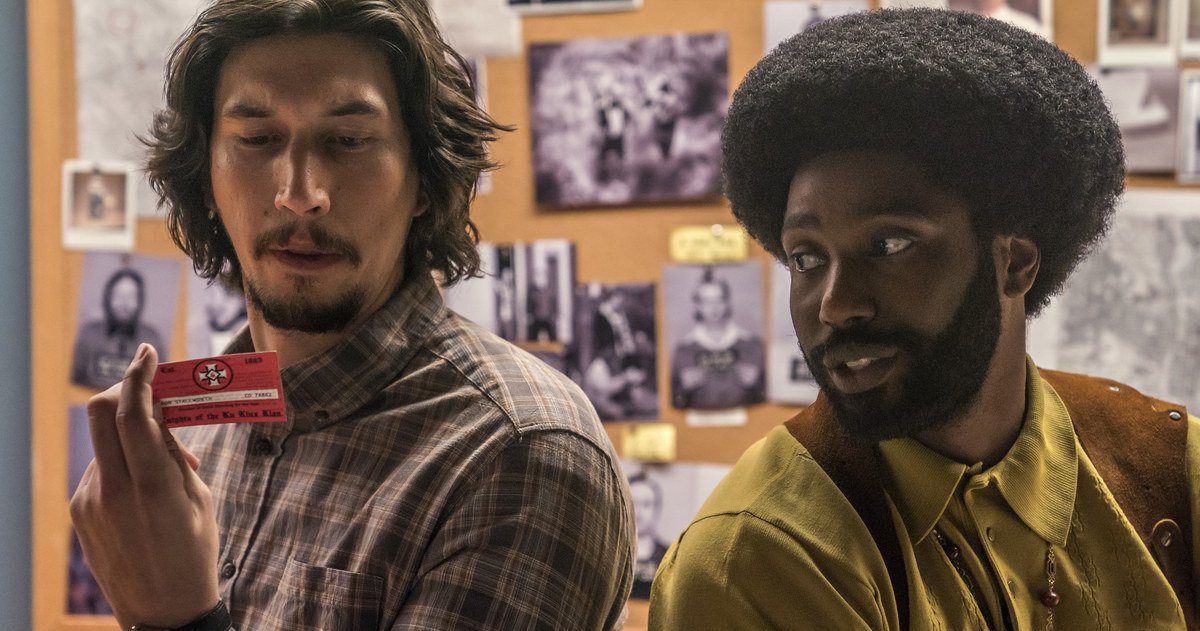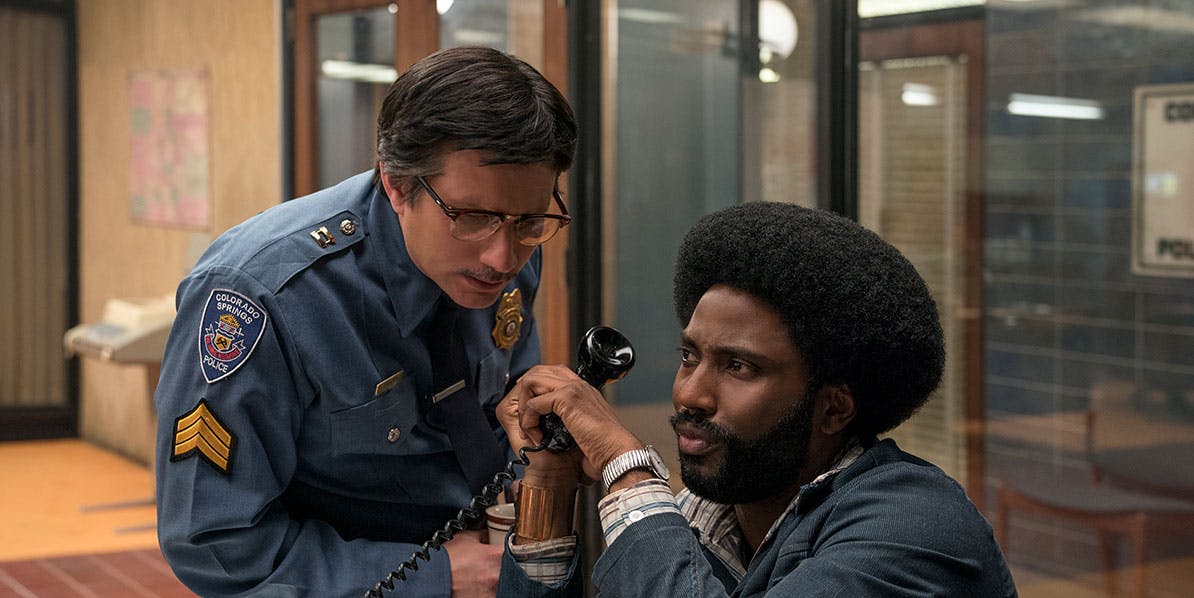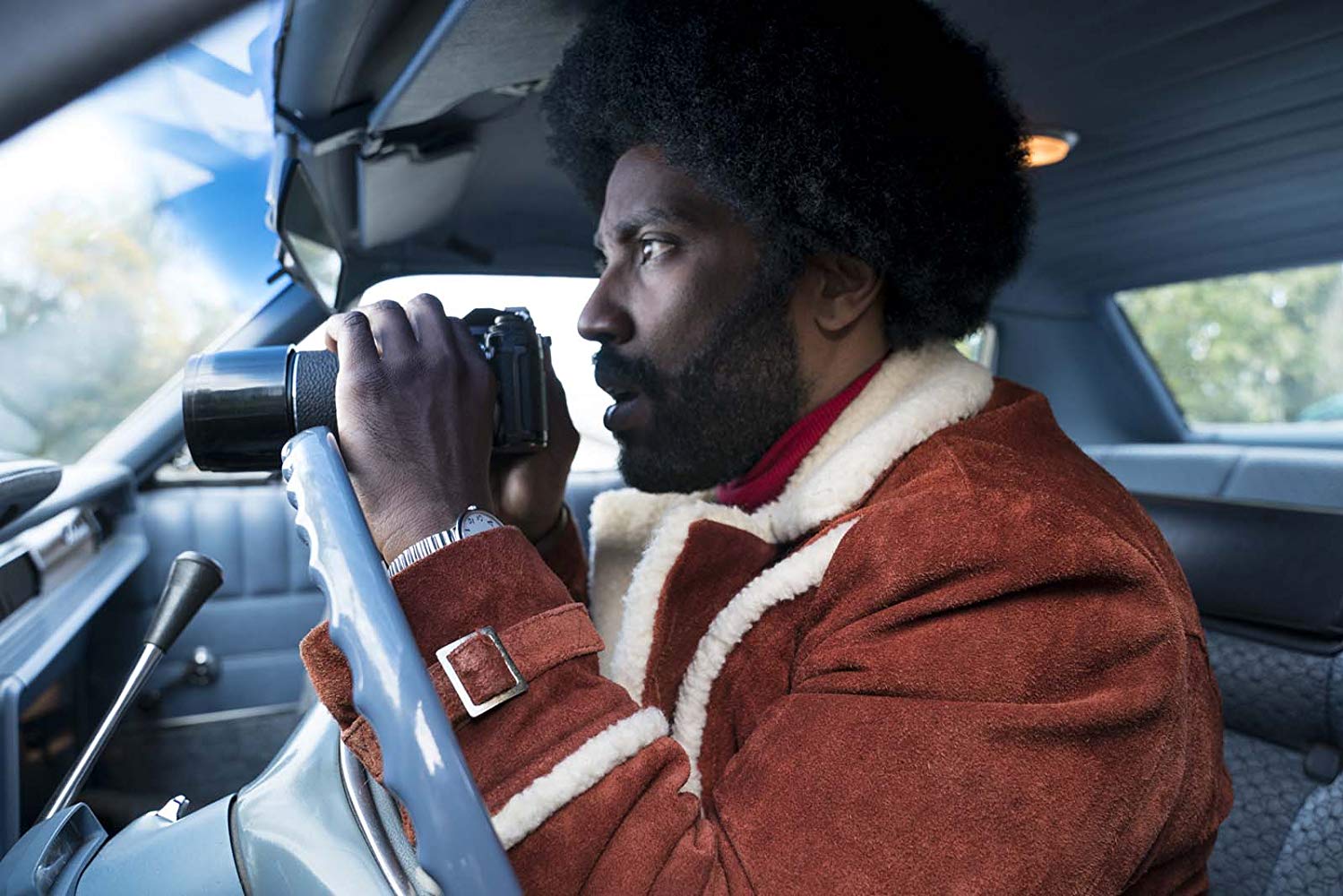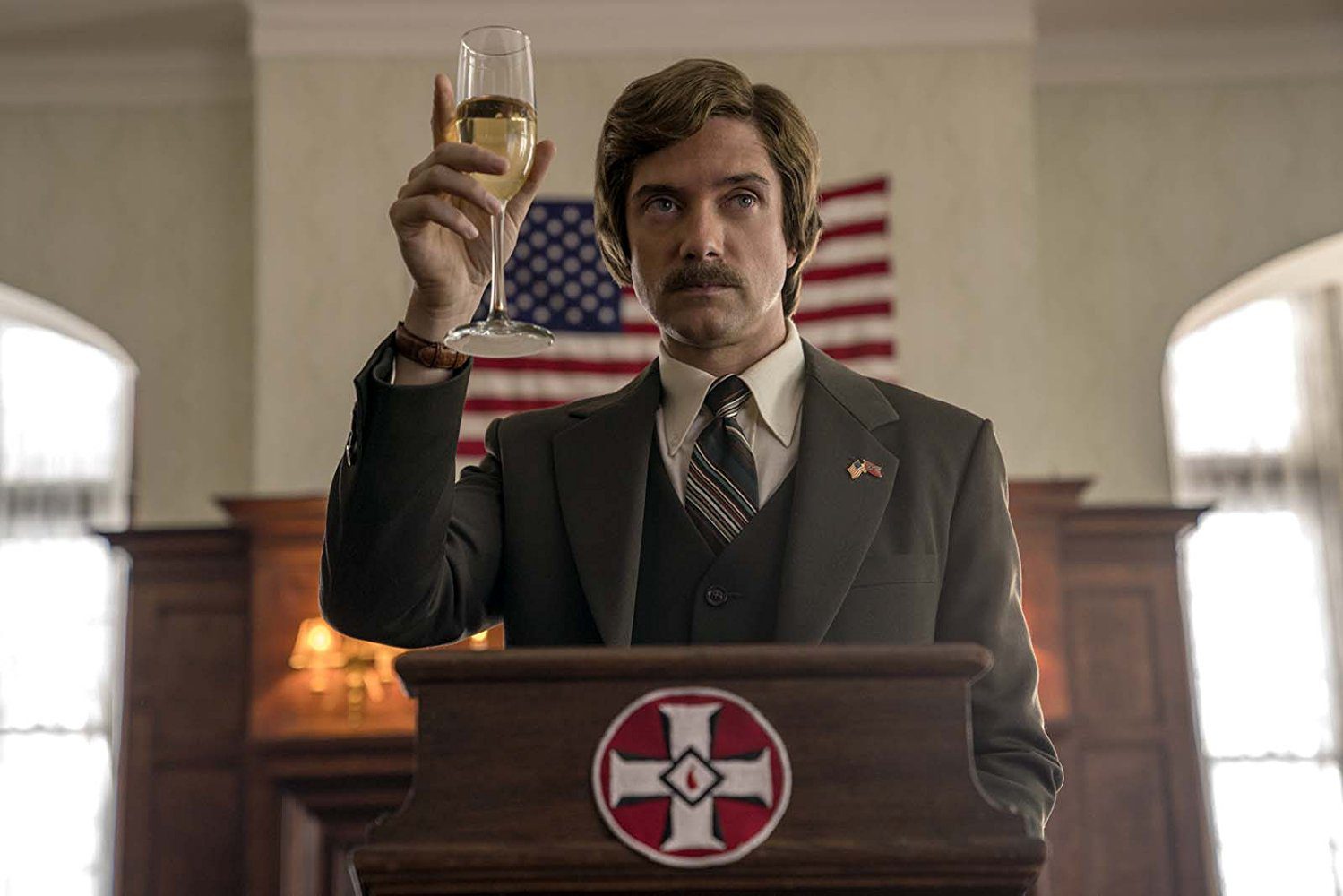“Anger, let’s be blunt, is too often ascribed to black people and it’s certainly been overused to describe Spike Lee many times throughout his long and varied career. Much of that we can justifiably chalk up to plain old, textbook racism. With BlackKklansman though, I think it’s a largely fair and accurate way to think about the emotions that informed it.
The events depicted in it occurred in the late 70s, but the movie was made now, at this moment in the Trump years; a worrying time of retreating democracy and rising white nationalism. There’s no way around that. To quote from Solange’s last album, “I’ve got a lot to be mad about”. These days Spike surely feels the same.
BlackKklansman tells the true story of Ron Stallworth, a young black cop who joins the force right around the same time that police departments across the country were reluctantly integrating. Played by John David Washington, son of Denzel Washington, he joins the forces at Colorado Springs, a mostly white town in a mostly white conservative state. As the sole African American employed there, after his superior moves him from the dreary records room to intelligence he’s dispatched to attend a rally for the charismatic black nationalist Kwame Ture (portrayed here by Corey Hawkins, who did such a good job as Dr. Dre in Straight Outta Compton).
With the advances of the civil rights movement and all the white supremacist violence that accompanied it only a very recent memory, the authorities saw one of the most pressing threats to the nation as….well, outspoken black activists. He attends with a wire hidden under his shirt as two white co-workers listen in from the street and meets the attractive black student union president (played by Laura Harrier, previously seen as the love interest in Spider-Man: Homecoming) who he romances while concealing his identity as a law enforcement officer. It’s not long however before he stumbles on his purpose after noticing an ad in the newspaper: infiltrating the local division of the KKK.
He impulsively dials them pretending to be a bitterly racist white interested in joining and-as apparently happened in real life-accidentally uses his real last name. Huge, dangerous rookie mistake. But amazingly he’s able to be pull it off anyway, regularly talking to the Klansmen on the phone while his colleague Flip Zimmerman (played by Adam Driver) attends their meetings pretending to be him and ingratiates himself to this colorful band of dangerous lowlifes. Most incredibly, Stallworth is able to reach the Grand Wizard himself, the still worryingly relevant David Duke. They share many intimate memories—only, of course, Stallworth is just making things up to earn and eventually abuse Duke’s trust.
In a stroke of strange casting brilliance, Duke is played by Topher Grace. Sporting a hilariously dated looking mustache, he eerily resembles the young leader and with his reliably sardonic presence is both amusing and sinister. He nails the misplaced certitude that defines nearly all bigots (amusingly he believes he can distinguish whites and blacks by how they pronounce the letter ‘R’). Washington, only recently segueing to acting from a career in football, is a very compelling lead who shows tremendous promise (along with a truly enviably Afro so round and perfectly coiffed it could almost pass for a turban).
Equally as captivating ore more, unsurprisingly, is Adam Driver as the cop trying to keep his Jewish heritage secret around white nationalists who would blow his brains out if they found out (Finnish actor Jasper Pääkkönen plays the Klans member most persistently suspicious of his ancestry and intentions). His acting on Girls was some of the most fascinating I’ve ever seen on TV. And in both of the Star Wars reboots thus far he’s brought nearly shocking gravitas to the franchise. Here he’s just effortlessly terrific, even if it’s something of a jolt hearing him spew some racial slurs (on that front, Spike-working with three other writers-doesn’t hold back a single inch).
Arguably the central performance in BlackKklansman is what Spike Lee does behind the camera. For decades now he’s been one of the most significant American auteurs and here he does some of his most consistently impressive work this side of his truly great 4 Little Girls. His stylistic flourishes here may not be quite as attention-grabbing as his recent Chi-Raq (which I loved), but then, they probably won’t be as polarizing either. Make no mistake: much of this movie is very entertaining and often very funny. Spike clearly enjoys revisiting that era. But even with all the scathing satire (including the inspired mock racist PSA starring Alec Baldwin that serves as a prologue), there’s a rage at what America has finally collapsed into he doesn’t hold back from unleashing. Thank God.
In one spectacularly chilling and indelible image, the targets used at the Klansmen’s shooting practice are discovered by Stallworth to be caricatures of black people. And in what will surely be one of the most powerful sequences of the year, Lee juxtaposes the Klansmen listening intently to their guru Duke talking about the superiority of the white Anglo race with the black student union listening intently to an elderly man (played by Harry Belafonte) recall the horror of being present during the horrific 1916 lynching of Jesse Washington in Waco, Texas.
The message, which should be abundantly self-evident in a time when even NPR invites white supremacist Jason Kessler and follows him with someone from Black Lives Matter as though they were flip sides of the same coin, is that there’s no comparison between white nationalism and black nationalism. One is an expression of hatred, entitlement, dominance, impending violence, and fear. The latter is a necessary reaction to it.
BlackKKlansman is bold stuff and fiercely unapologetic. It’s ultimately more near-great than flawless. In particular the relationship between Stallworh and the leftish black student union leader seems fairly undercooked and ill-defined (a major reveal that should be a source of much conflict between them is essentially abandoned).
At another point Stallworth is shown answering a call from one of the KKK members as Zimmerman is seen walking up to the Klan meeting place. On screen this happens simultaneously suggesting the stakes are about to be ratcheted up considerably, only to be just a manipulative tease. And the climax of this wild story felt to me like a slight letdown, as though a tonally all over the map screenplay couldn’t quite figure out exactly how to tie it all up.
For the most part though this gorgeously mounted picture shot in 35MM (with cinematography by Lemonade’s Chayse Irvin) is very on point. I love how much Spike Lee loves cinema and I love how much he disdains this president. The news footage that ends it is a blistering indictment of Donald Trump and a memorial to the young woman-Heather Heyer-who lost her life because of the racial-terrorism Stallworth was trying to prevent. Arriving in theaters the same weekend as the first anniversary of the Charlottesville protests couldn’t feel more fitting.
Spike, who has a mock clip of Gone with the Wind serve as the movie’s first images and later extensively references Birth of a Nation, doesn’t want you to leave thinking that what we’re living through is some freak aberration. It follows a straight line back through race-baiting politicians, Klan rallies, lynchings, cross burnings, beginning with the slave ships. No right-thinking person should actually expect Spike to ever be polite or subtle about it”
Score:
4/5





